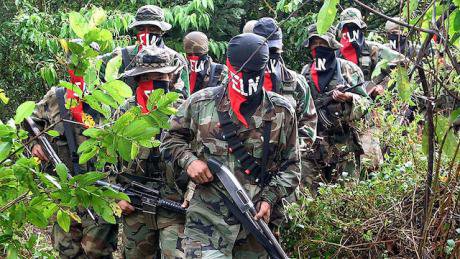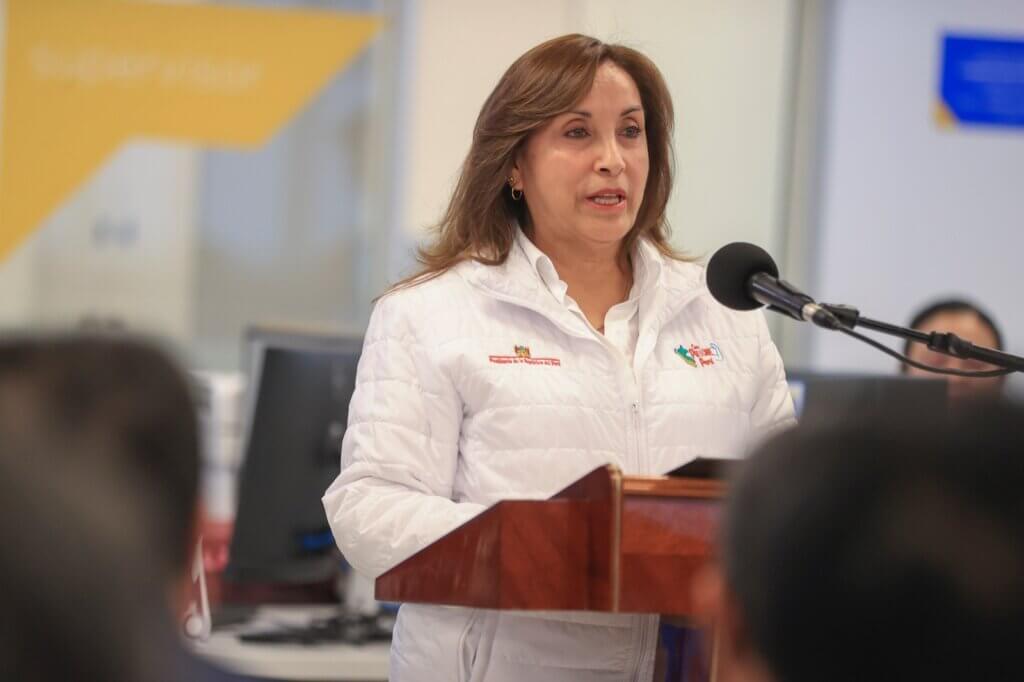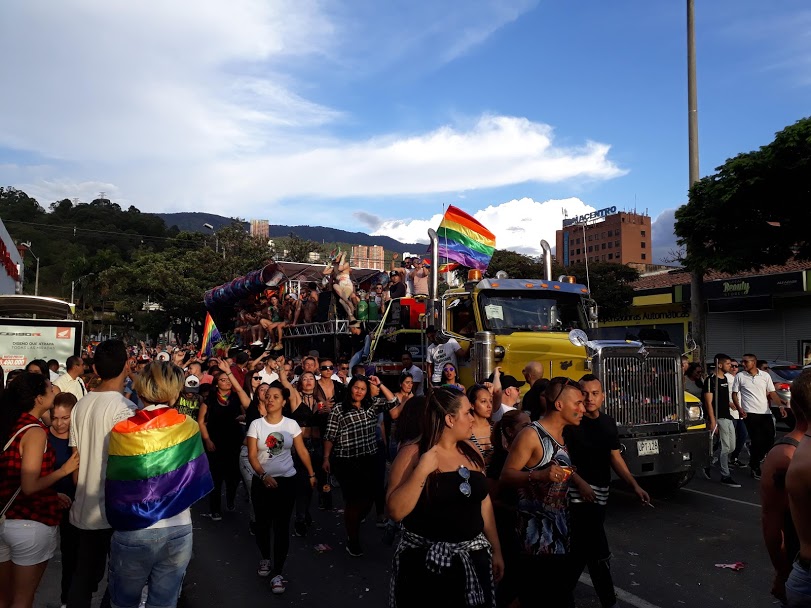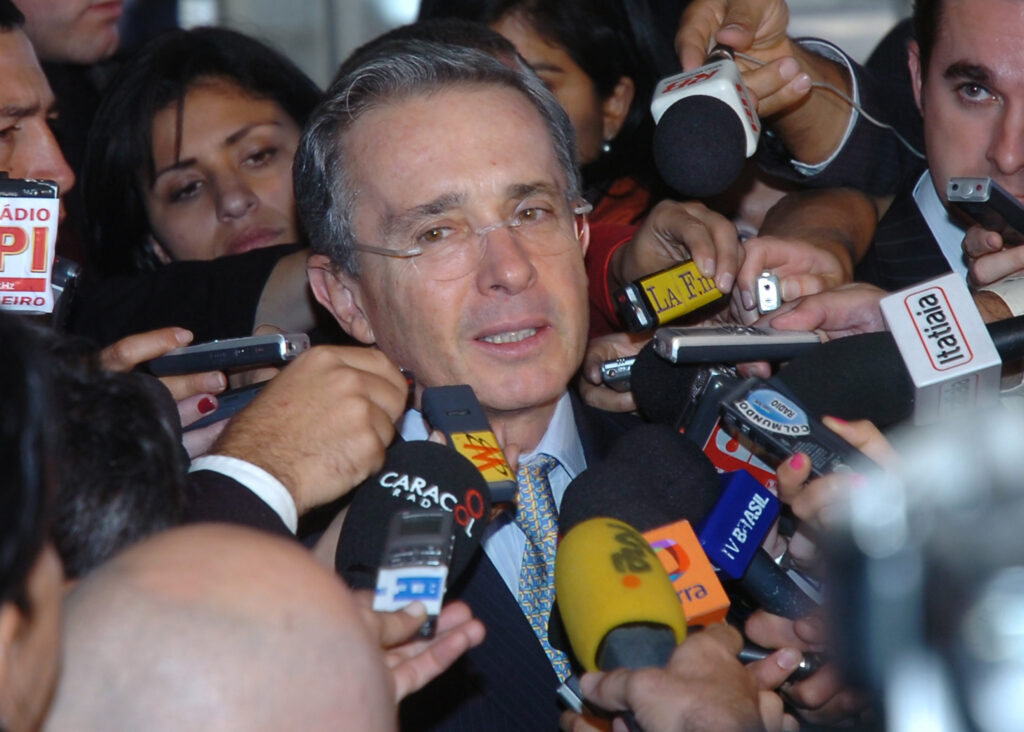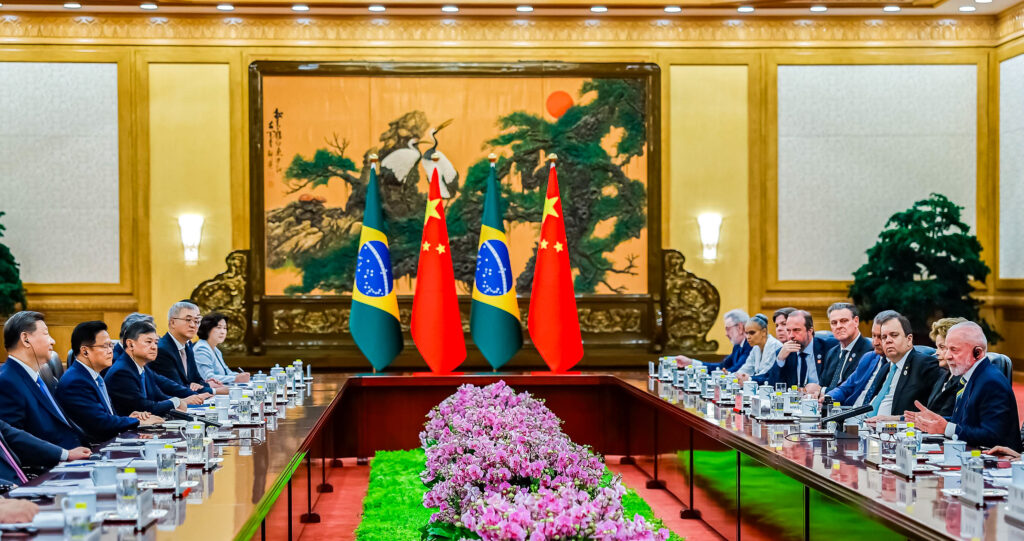Colombian President Gustavo Petro announced on Tuesday that he would suspend peace talks with the National Liberation Army (ELN), a leftist insurgency that’s been fighting the government since the 1960s.
The decision came after a terrorist attack by the group in Arauca on Tuesday.
Petro said, “An explosive-filled truck injured 27 young soldiers and killed two. It was placed by the ELN (at a military base), with whom we were discussing peace. This is an action that ends a peace process with blood.”
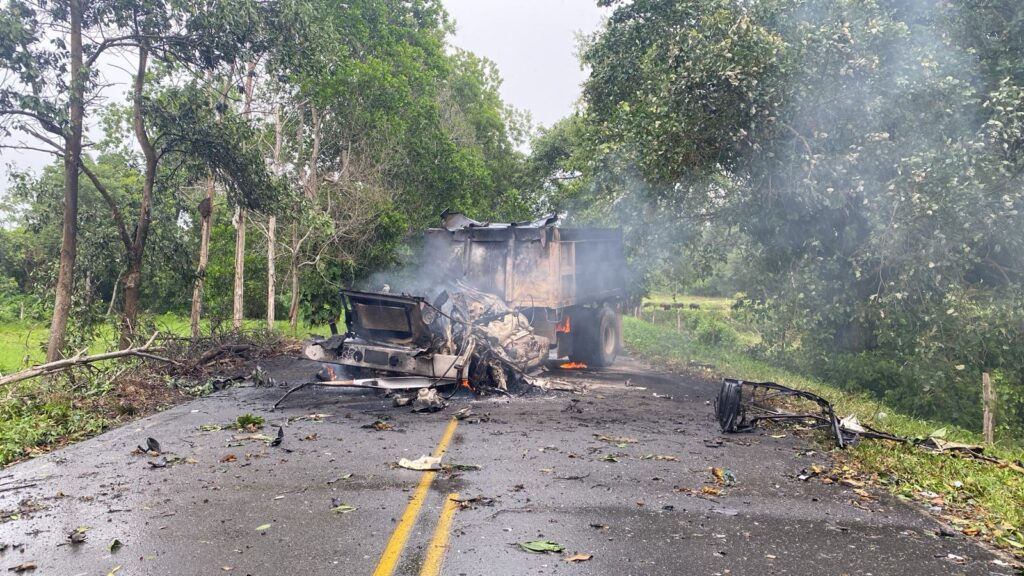
Terrorist attack
On Wednesday, Colombia’s National Army released a statement explaining that one of their divisions, located in the north-eastern town of Puerto Jordán, Arauca, had been bombed with makeshift explosives thrown from a passing truck.
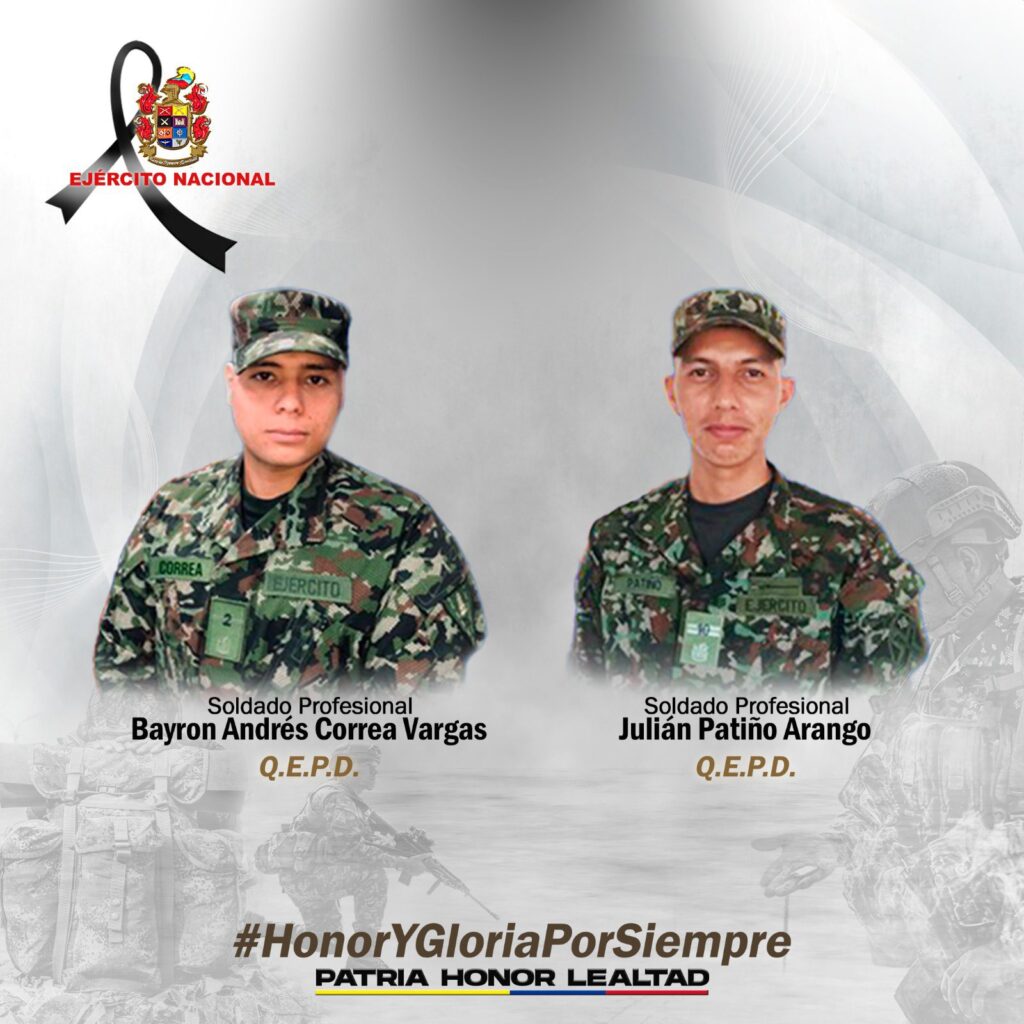
The army said seven soldiers were gravely injured and airlifted to the nearest medical centers. Two of them, Julián Patiño Arango and Bayron Andrés Correa Vargas, passed away due to the nature of their wounds.
Twenty-one other soldiers were injured, and due to the proximity of the explosions to local schools, children’s lives were also put at risk, according to the military, which also said “constitutes a glaring violation of human rights and a grave infraction to international humanitarian law.”
According to the Army, two men were captured in connection to the attack, which was ultimately attributed to the ELN.
“This clearly demonstrates the National Liberation Army’s true commitment to peace. When we were expecting a gesture that would allow us to continue the negotiations, which we had been advancing on with this illegal group, this is the response that they have given us,” stated Iván Velásquez, Colombia’s Minister of Defense, on Wednesday.
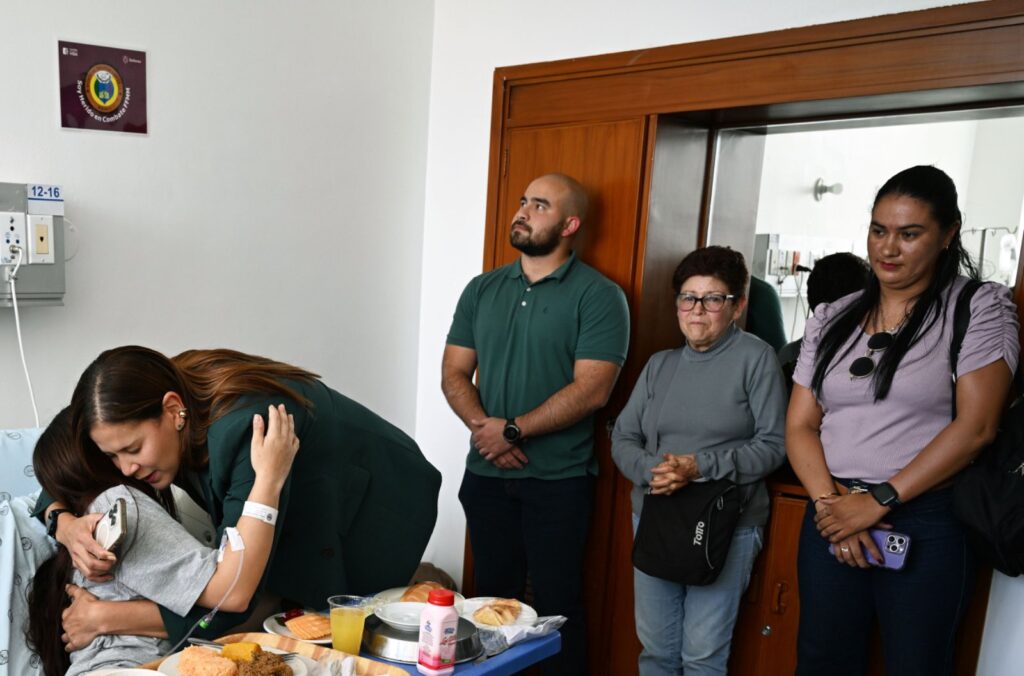
Image Source: Colombia Ministry of Defense via X
Later in the day Minister Velásquez also assured that the military forces will now advance in offensive operations against all illegal armed groups who are not going through a peace process. “The ceasefire is off. Military forces have now designed different operations against all of these groups, and their efforts will be intensified,” he said.
Peace Negotiations
Peace talks with Colombia’s different armed groups have fallen in and out of favor with different governments for decades, but Petro had made a campaign promise to achieve total peace with all armed groups during his term.
Despite its inability to secure concrete peace agreements with both leftist rebels as well as drug trafficking organizations, the country’s peace brokering efforts have been recognized internationally because of its work in conflict resolution and transitional justice, according to the Institute for the Study and Development of Peace (Indepaz).
In 2016, Colombia signed a peace deal with what was at the time the country’s largest leftist guerrilla insurgency, the Revolutionary Armed Forces of Colombia (FARC). Since then, some fighters have re-armed and formed dissident factions.
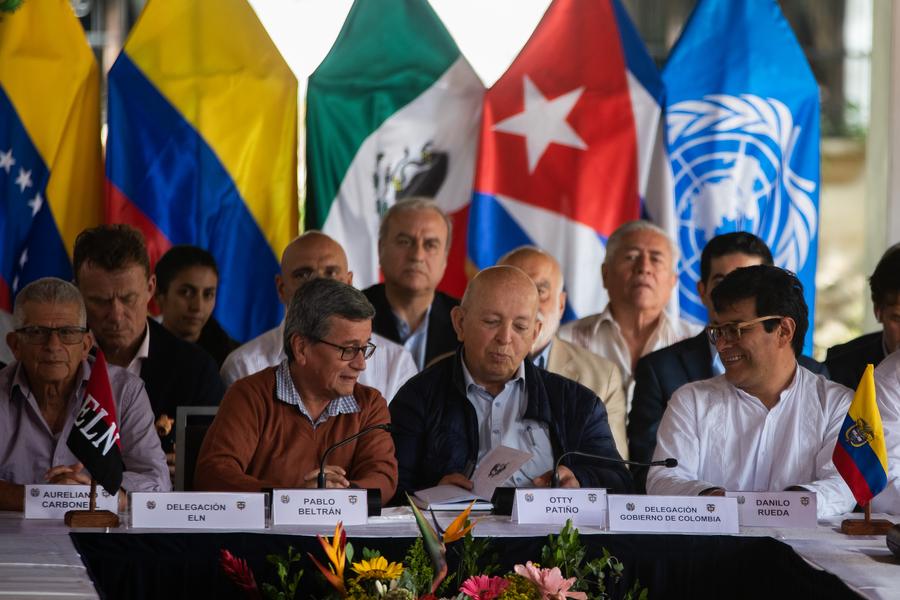
Image Source: Fundación Ideas para la Paz via X
The ELN is currently Colombia’s oldest continuously active Marxist insurgency, and has been involved in peace talks with the government at various stages since their inception in 1964. They are heavily present in Colombia’s Pacific region, as well as along the border with Venezuela and inside the neighboring country.
While President Petro claimed in March 2021 that the ELN would be demobilized “in three months,” if he was elected, the negotiations have experienced three great crisis moments, and have lasted over a year and a half.
The ELN violated the ceasefire they had agreed on with the government more than 200 times during the first year of the negotiations according to Indepaz, and the talks had been halted for several months before the recent attack in Arauca.
According to The Peace and Reconciliation Foundation (PARES), an NGO, two points led to the talk’s failure: the government would not recognize the “Comuneros del Sur” ELN front as an independent force, nor would it remove the ELN from its official list of organized armed groups.
Since August 3, when the ceasefire was not renewed, different forms of violence have been registered, including attacks on civilians, bombings, and kidnappings, according to the foundation.
“During these months, the government has given the ELN different proposals. Today, any dialogue is suspended, and its viability severely weakened, as its continuation can only be recuperated through the unequivocal commitment to peace by the ELN,” stated the Government of Colombia’s Peace Delegation on Wednesday.
What is the ELN?
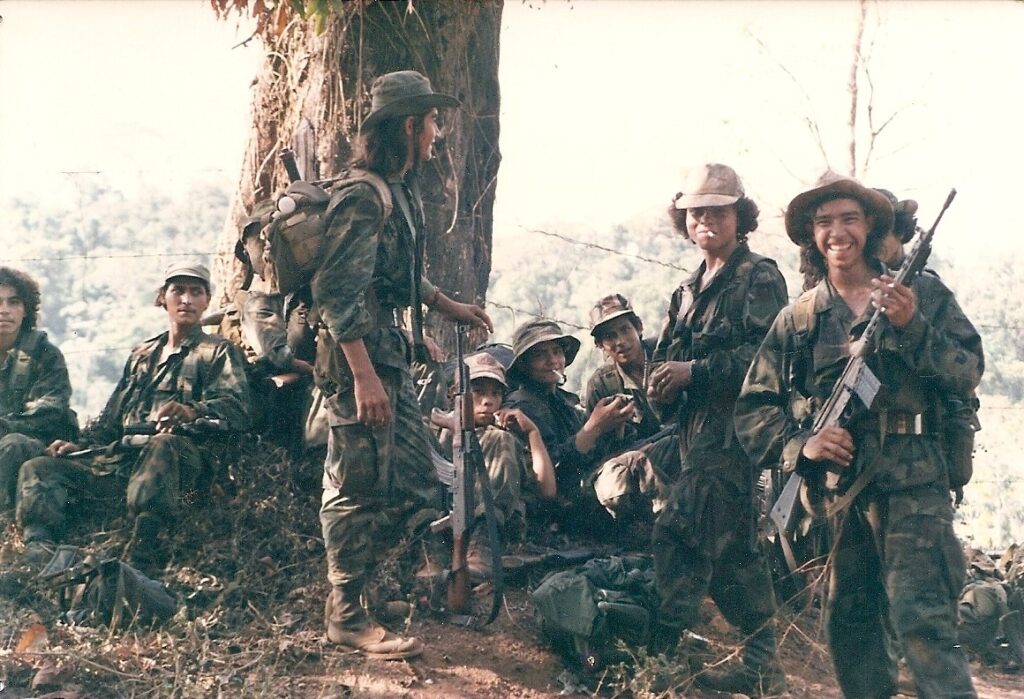
The ELN started as a leftist nationalist movement in the 1960s, influenced by the Cuban Revolution, according to Indepaz. Initially, they sought to demand peasant rights and social justice, although the group had become involved with drug trafficking and kidnapping as a way of financing its insurgency.
According to Insight Crime, a think tank that investigates organized crime in the Americas, the ELN is made up of more than 6,000 members, including militants infiltrating the civilian population. And whereas in Colombia the ELN confronts the state through armed struggle and battling other criminal groups, in Venezuela it acts like a paramilitary force supporting the government of President Nicolás Maduro.
Although the ELN initially resisted becoming directly involved with drug trafficking, the development of the Colombian armed conflict, combined with the weakening of the guerrillas, led to various fronts engaging with coca production, as per the think tank.
Some structures of the illegal group collect taxes from peasants and drug traffickers, while others are actively involved in international drug rings.
Currently, Eliécer Erlinto Chamorro, alias “Antonio García,” is the commander of the group, accompanied by Israel Ramírez Pineda, alias “Pablo Beltrán,” the political commander and chief negotiator, according to Insight Crime.


